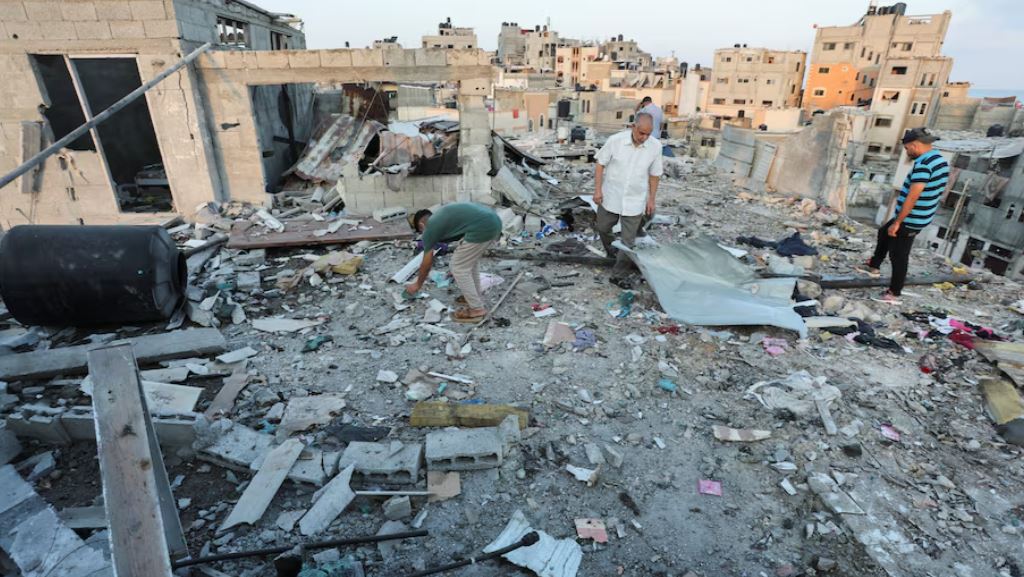On August 30, 2024, a devastating Israeli airstrike targeted an aid convoy in Gaza, resulting in the deaths of four Palestinians. The convoy, organized by the U.S.-based aid organization Anera, was transporting critical supplies to the Emirati Red Crescent Hospital in Rafah. This incident has sparked significant controversy and debate, with conflicting reports from Israeli authorities and humanitarian groups regarding the circumstances leading up to the strike.
Details of the Incident:
According to Anera, the airstrike occurred shortly after the convoy departed from the Kerem Shalom crossing, which is controlled by Israel. The convoy was en route to a Gaza hospital when the lead vehicle, occupied by four Palestinians, was hit. Anera asserts that these individuals were part of a security detail intended to protect the convoy due to safety concerns along the route. The group claims that the vehicle was not armed, contradicting Israeli military statements that alleged the vehicle was being used by “armed assailants.”
Anera’s statement highlights that the four Palestinians who died had taken control of the lead vehicle to safeguard it against potential threats, not as an armed response. The aid organization noted that the security measures had been agreed upon with Israeli authorities, which required the presence of unarmed security guards. However, these individuals had not been officially vetted or coordinated with Israeli officials, leading to further complications and miscommunications.
Israeli Military Response:
In response to the airstrike, the Israel Defense Forces (IDF) provided a statement indicating that the lead vehicle of the convoy had been seized by armed individuals. The IDF claimed that after confirming the presence of weapons and the need for a precise strike, the airstrike was carried out. This assertion has been contested by Anera and other observers who argue that there was no evidence of weapons or any immediate threat from the vehicle.
Historical Context and Previous Incidents:
This incident is not isolated in the context of ongoing conflicts involving aid and humanitarian operations in Gaza. In April of the same year, Israeli strikes had previously targeted a convoy of aid vehicles, resulting in the deaths of seven staff members from World Central Kitchen. Additionally, the United Nations World Food Programme reported a separate incident where one of its vehicles was struck by gunfire near an Israeli military checkpoint.
The escalation of violence in Gaza began on October 7, 2023, when Hamas, a Palestinian Islamist group, launched attacks on Israel, resulting in significant casualties and hostages. In response, Israel intensified its military operations in Gaza, which have led to substantial civilian casualties and widespread displacement. The local health ministry reports that over 40,000 Palestinians have been killed, with nearly the entire Gaza population displaced and facing a severe hunger crisis. The international community has raised concerns about potential war crimes and genocide allegations against Israel, which the Israeli government denies.
International and Humanitarian Reactions:
The airstrike has drawn widespread criticism from humanitarian organizations and international observers. The lack of prior warning or communication before the strike, coupled with conflicting reports about the nature of the threat, has intensified scrutiny of Israel’s military actions. The humanitarian impact of such strikes, particularly on aid convoys, raises significant ethical and legal questions about the conduct of war and the protection of civilian life.
Conclusion:
The airstrike on the Gaza aid convoy underscores the ongoing tensions and complexities of the Israeli-Palestinian conflict. The conflicting narratives between Israeli authorities and humanitarian organizations highlight the challenges of navigating wartime reporting and accountability. As the situation in Gaza continues to evolve, the international community faces pressing questions about the humanitarian impact of military actions and the need for effective measures to protect aid operations and civilian lives.
Soumya Smruti Sahoo is a seasoned journalist with extensive experience in both international and Indian news writing. With a sharp analytical mind and a dedication to uncovering the truth, Soumya has built a reputation for delivering in-depth, well-researched articles that provide readers with a clear understanding of complex global and domestic issues. Her work reflects a deep commitment to journalistic integrity, making her a trusted source for accurate and insightful news coverage.



